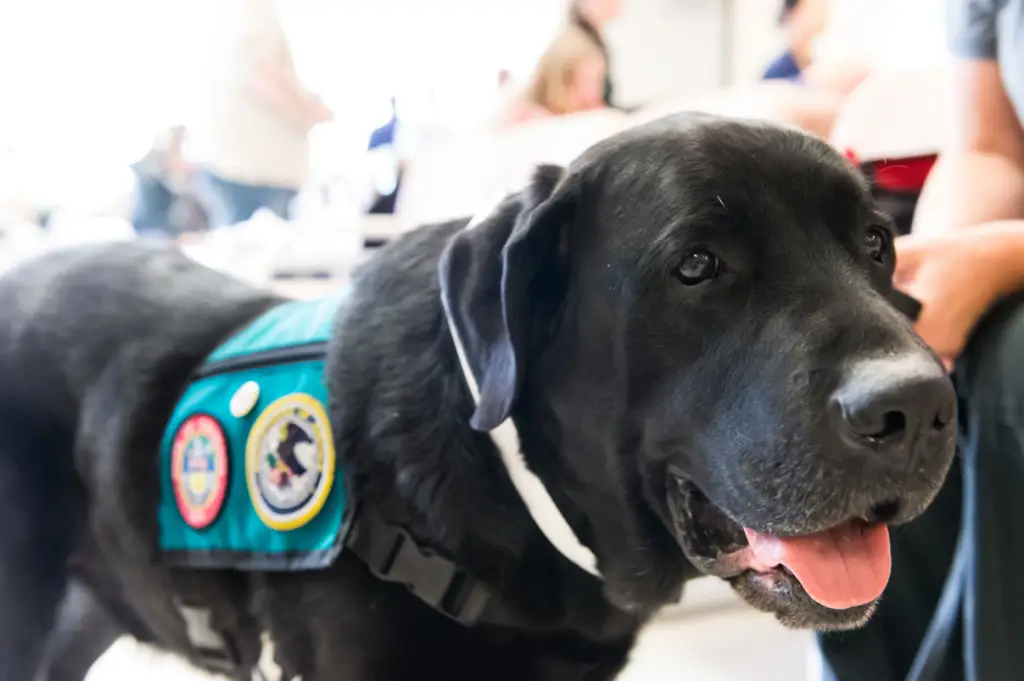For a long time, only certified and highly trained service animals could tread where pets could not. But, since 1988, when the Fair Housing Amendments Act (FHA) passed, emotional support animals (ESAs) have been viewed as a “reasonable accommodation” for people with mental or emotional illnesses, disabilities or disorders.
Recently, many universities in America, including Western Washington University, University of California Berkeley and The Catholic University of America, have noted an increase in students requesting approval of ESAs.
In 2011, a lawsuit was filed against the University of Nebraska at Kearney by a student who felt that the university’s refusal to let her live on-campus with her emotional support dog was discriminatory. She claimed that her dog, recommended as an ESA by her doctor, counted as a “reasonable accommodation” under the FHA. Prohibiting her from living with her dog would be discrimination against a disabled student, she argued.
Although ESAs aren’t recognized as service animals by the Americans with Disabilities Act, an emotionally or physically disabled persons has the right to live with their support animal in residential university spaces. Like licensed service animals, ESAs must perform duties or aid (even if only their comforting presence) related to the disabled person’s disability to quality for the title of “assistance animal.”
Although the requirements of an individual university or college may differ, all students requesting the authorization of an ESA must have been diagnosed with an emotional or mental disorder, and their ESA must be recommended by a doctor.
There are many things service animals can do that ESAs cannot. While service animals are trained specifically to perform certain disability-related tasks and duties for a disabled individual, such as pull a wheelchair, recognize and aid with seizures, guide visually impaired or blind people, open doors, etc., ESAs don’t require any special training. In fact, if an animal is recommended by a person’s doctor to improve a person’s quality of life in some way related to the person’s mental disorder or disease, then that animal is considered an ESA.
Of course, officially licensed service animals are allowed in public spaces, while ESAs are not. Public spaces include libraries, classrooms, campus dining halls, restaurants, grocery stores and many other places; ESAs don’t get the same special treatment, because they are not specially trained.
If a student’s doctor has stated that the student requires an ESA as part of a treatment plan for a diagnosed mental condition, then colleges are required to allow that ESA to live on campus. But colleges are not required to allow ESAs to go anywhere apart from the disabled student’s own residential building or living space.

One of the biggest issues with ESAs is that many college students want to own an animal, but don’t recognize the costs and responsibilities that come with caring for one. Food, water and veterinary services (including immunizations, medications and/or other medical procedures an animal may require while living on a college campus) are absolutely necessary. In addition, a student must have access to a private source of transportation, such as a car, van or truck, for transporting their animal to veterinary appointments should illness or injury occur. ESAs, unlike service animals, are not allowed on public transportation.
Aside from the cost of feeding an animal and paying its medical bills, ESA owners are expected to pay for all damages to the college or other students caused by their ESA. So, while ESAs don’t require special training like service animals, it is critical for students to remember that they are fully responsible for their animal’s misbehavior. If their dog keeps other students awake by barking at night, or their cat shreds a roommate’s bedpost, the owner of that animal must pay for all damage done.
ESA owners are expected to clean up after their animal. They must provide their animal with adequate living space, walks and entertainment (toys, a cat tower for large cats, etc.). It is unacceptable to leave an ESA cooped up all day in a tiny dorm room without walks and playtime. Mistreatment of an ESA is animal abuse, and could result in the animal being removed from the college campus, and even taken away from the owner.
ESAs are not considered pets. They are assistance animals. A certain level of obedience and domesticity is expected of support animals living in “pet-free” residential areas. Having an ESA is a privilege as well as a right—students with ESAs are expected to check with their university’s disability resource center or other official resource to get their assistance animal cleared for on-campus living long before they move in. Otherwise, fees or other disciplinary action may be taken against unauthorized ESAs living in residential spaces on college campuses.
Another major issue with ESAs is that some students will try to pass off ESAs as licensed service animals. Either that, or students might believe that their ESA has the same rights as a service animal, meaning that many ESAs end up in public spaces and situations that they are not legally allowed to be in—a potentially terrible experience for everyone involved, including the animal. While service animals are trained to stay calm and steady in all public spaces (such as at sports games, crowded restaurants, libraries, etc.), most ESAs are not.
This means that if a student brings an untrained ESA into a public space, the ESA may become scared, antsy or otherwise uncomfortable. An agitated or bored ESA might cause a scene, property damage or even damage to other people or animals. While a properly trained service dog knows not to bark in the library or steal food from someone’s plate at a restaurant, an ESA might not.
In fact, faking an ESA license or trying to pass off an ESA as a service animal are considered second-degree misdemeanors. If an offender is convicted of either misdemeanor, they can be fined and sentenced to thirty hours of community service.
If you’re a college student diagnosed with an emotional disorder and are considering an ESA, first weigh the requirements and responsibilities of owning an assistance animal against the other responsibilities and circumstances of your life. If you think that you have the time, money, resources and responsibility to care for an ESA on a college campus, and your doctor believes that an ESA would improve your quality of life, then go for it. But remember: An ESA is not a pet; an ESA is an assistance animal. If you don’t have a diagnosed emotional or mental disorder and/or can’t handle the responsibility of caring for another living creature, then an ESA is not for you.
To learn more about ESA laws and licensing, you can visit the Animal Legal and Historical Center. Keep in mind that, while there are no limits on the species of animal that can qualify as an ESA, each person may only have one ESA. For information specific to your college or university, look up your university’s ESA policy, or ask someone at your university’s student resource or disability center for instructions on acquiring, qualifying and licensing an ESA.


















While the points made are helpful with regards to an ESA,
it should be noted that there is no requirement for, or legally valid type of, ‘certification’ for any legitimate service animal, and the only ‘license’ a service animal needs is the same city or county license any pet needs to have.
Generally a very good article and something I would recommend all potential ESA owners should read. I did have one issue, however. In a couple of places mention was made of “licensed service animals”. Please note that according to the U.S. Department of Justice there is no legally recognized license, registry, or certification for service dogs in the United States.